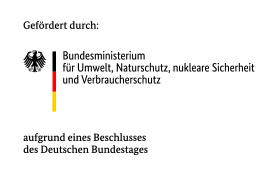
The advancing digitization is increasingly influencing everyday work in so-called “knowledge-intensive” professions. Software that supports experts in dealing with legal texts and questions is often summarized under the term "Legal Tech". In theory, it can help make legal expertise available more quickly and cheaply, and hence making it more accessible, especially for consumers. In practice, however, the necessary technologies are often only available to commercial actors. The goal of AGB-Check is the development of innovative technologies that support legal knowledge workers in their efforts to represent the interests of consumer in the digital age better and more effectively.
Using the example of a specific application - automated legal reviews of terms and conditions - we want to research technologies that:
The phrase "I have read and understood the terms of service" is often referred to as the biggest lie on the internet. Standard form contracts trace back to the 19th century. In the age of industrialisation, entering into contracts has been accompanied by the unilateral use of pre-formulated rules tailored to one party’s own interests and thus resulting in an imbalance of powers between the contracting parties. Today, customers are confronted with standard form contracts every day in form of Terms and Conditions (T&C) or Terms of Services (ToS), for example when they buy something online or register for an online service. Studies with more than 45,000 participants have shown that only 0.1% to 0.2% of customers read the T&C of online shops.
While standard form contracts regularly reflect an imbalance of contracting power, this imbalance is even stronger in situations where one of the contracting parties is a consumer without a professional legal background and the other one is a company with a potentially huge legal department. The relevance of this is visible by in the amount of jurisprudence in this area, comprising more than 28,000 judgements in Germany only.
In acknowledgement of these facts, the European lawmaker has limited the creative leeway for companies, when it comes to standard form consumer contracts. One might ask oneself why consumers should care about unlawful clauses in Terms and Conditions, because in case of a dispute, these clauses are void anyway. In reality, however, at least for online shopping, the amount in dispute is often so low that consumers avoid legal steps, even if they are in the right.

